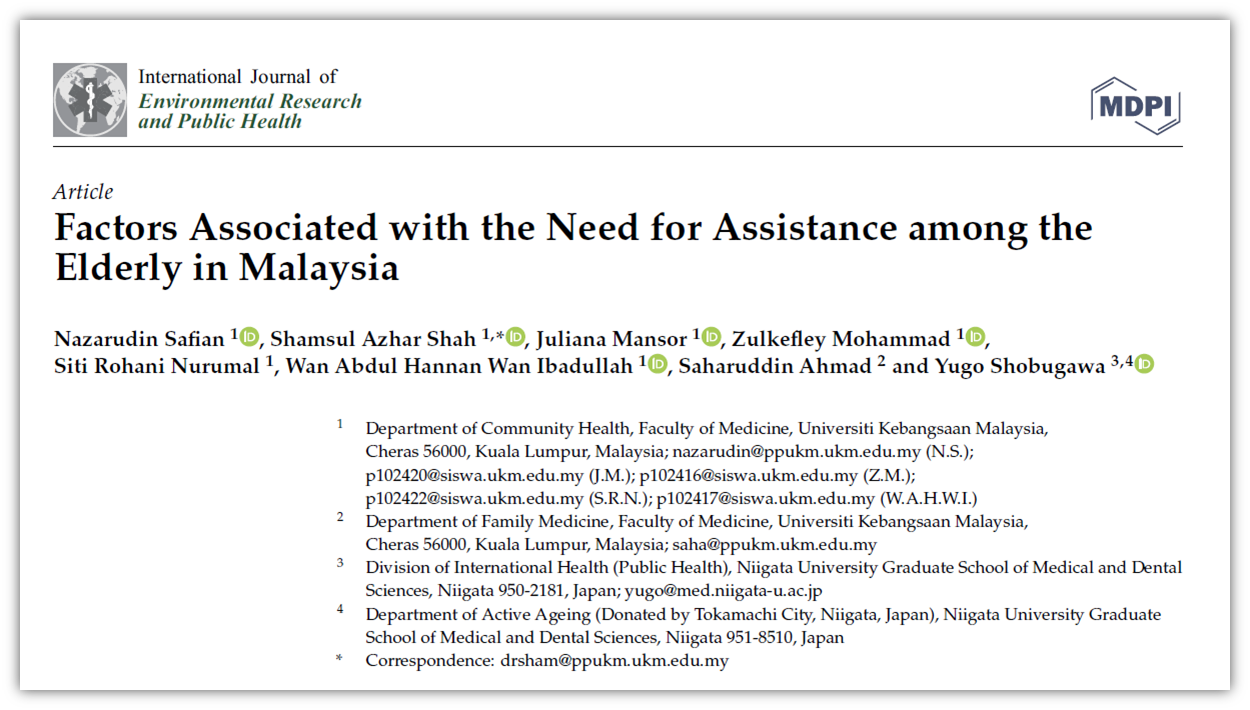Perceived need for care and assistance among older people in Malaysia

Malaysia’s population of older people over the age of 60 is expected to double in the next twenty years, making it important to plan for the health and social care this population will need over the long term.
Findings from research on the older population in Malaysia supported by the WHO Kobe Centre was recently published in the International Journal of Environmental Research and Public Health. The study used a survey instrument adapted from the Japan Gerontological Evaluation Study (JAGES) to establish how many older people needed assistance and the types of assistance they required.
The research was based on face-to-face interviews with a sample of 1204 older people living at home in Selangor state (excluding those with serious physical or cognitive impairment). It found that, on average, only 8% of respondents reported that they needed care or assistance in their daily life. Yet, a significant proportion of them reported having difficulty seeing (69%), walking or climbing stairs (50%), remembering (38%) and hearing (27%). Many of them also reported being unable to perform activities of daily living on their own, like filling out documents (42%), using public transportation (36%), or withdrawing and depositing money (36%). Forty percent of them expressed that they were “very concerned” about falling.
While the older people’s perceived need for daily care and assistance was low, they commonly reported physical and functional challenges that could be addressed through greater availability of services. Perceptions of need for care and assistance alone can be misleading. Thus, objective measures are also important to inform service delivery and planning.

